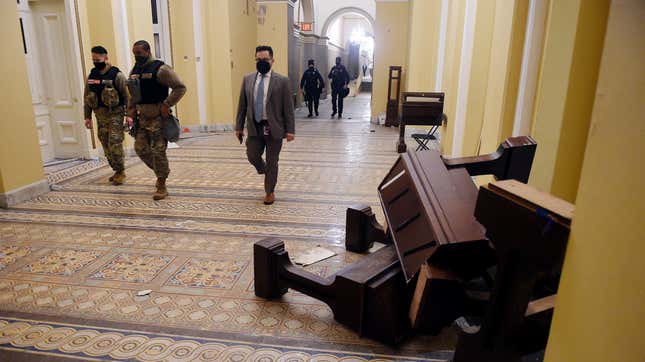The Furniture Damaged in the Capitol Riot Will Almost Certainly Be Rebuilt By Incarcerated People For Pennies
Latest

The day after pro-Trump rioters forced their way into the Capitol building to take selfies and smear shit on the walls, the people responsible for cleaning up other people’s messes on the Hill were back on the job, using leaf blowers to collect trash and sliding mops across the floors. The wreckage included pieces of broken office furniture that Capitol workers wheeled out in carts. Photographs of a jumble of apparently disassembled desks were circulated online.
Given the various contractual relationships between the federal government and its subsidiary, Federal Prison Industries, Inc, the furniture that eventually replaces the vandalized items will almost certainly be built by incarcerated people working through a pandemic for wages between 23 cents and $1.15 an hour.
-

-

-

-

-

-

-

-

-

-

-

-

-

-

-

-

-

-

-

-

-

-

-

-

-

-

-

-

-

-

-

-

-

-

-

-

-

-

-

-








































